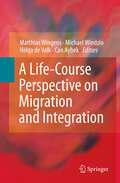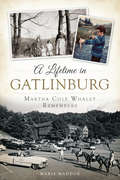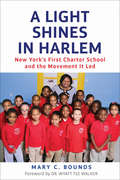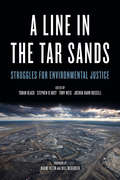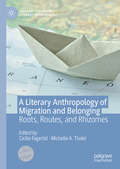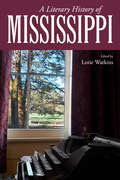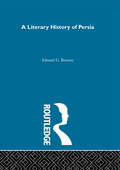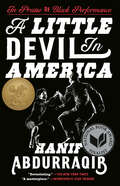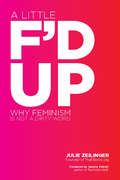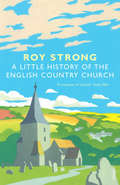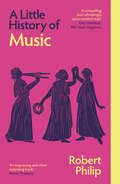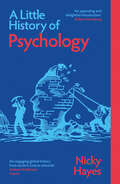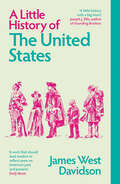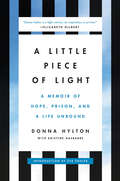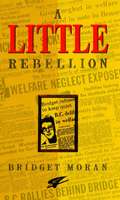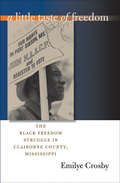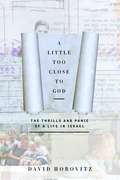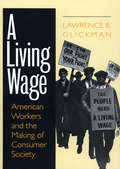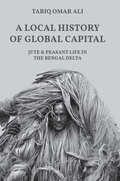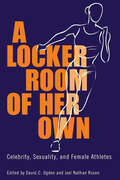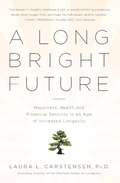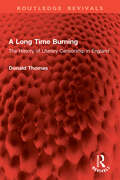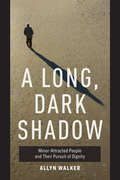- Table View
- List View
A Life of Worry: Politics, Mental Health, and Vietnam’s Age of Anxiety (Ethnographic Studies in Subjectivity #17)
by Allen L TranA free ebook version of this title is available through Luminos, University of California Press’s Open Access publishing program. Visit www.luminosoa.org to learn more. Who, what, and how we fear reflects who we are. In less than half a century, people in Vietnam have gone from fearing bombing raids, political persecution, and starvation to worrying about decisions over the best career path or cell phone plan. This shift in the landscape of people’s anxieties is the result of economic policies that made Vietnam the second-fastest-growing economy in the world and a triumph of late capitalist development. Yet as much as people marvel at the speed of progress, all this change can be difficult to handle. A Life of Worry unpacks an ethnographic puzzle. What accounts for the simultaneous rise of economic prosperity and anxiety among Ho Chi Minh City’s middle class? The social context of anxiety in Vietnam is layered within the development of advanced capitalism, the history of the medical and psychological sciences, and new ways of drawing the line between self and society. At a time when people around the world are turning to the pharmaceutical and wellness industries to soothe their troubled minds, it is worth considering the social and political dynamics that make the promises of these industries so appealing.
A Life-Course Perspective on Migration and Integration
by Michael Windzio Matthias Wingens Can Aybek Helga De ValkOver the last four decades the sociological life course approach with its focus on the interplay of structure and agency over time life course perspective has become an important research perspective in the social sciences. Yet, while it has successfully been applied to almost all fields of social inquiry it is much less used in research studying migrant populations and their integration patterns. This is puzzling since understanding immigrants' integration requires just the kind of dynamic research approach this approach puts forward: any integration theory actually refers to life course processes. This volume shows fruitful cross-linkages between the two research traditions. A range of studies are presented that all apply sociological life course concepts to research on migrants and migrant groups in Europe. The book is organized thematically, indicating different important domains in the life course. Using a wide variety of methodological approaches, it covers both quantitative studies based on population census data and survey material as well as qualitative studies based on interviews. Attention is paid to the life courses of those who migrated themselves as well as their offspring. The studies cover different European countries, relating to one national context or a particular local setting in a city as well as cross-country comparisons. Overall the book shows that applying the sociological life course approach to migration and integration research may advance our understanding of immigrant settlement patterns as well as further develop the life course perspective
A Lifetime in Gatlinburg: Martha Cole Whaley Remembers (American Heritage)
by Marie MaddoxToday, Gatlinburg is an idyllic mountain resort. But the Sugarlands Valley in the 1910s couldn't have been more different. Martha Cole Whaley began her life on the outskirts of the city and has witnessed firsthand the joy and struggle of more than one hundred years in the area. Her rich experiences include what it was like to eat onion tops for an after-school snack, bathe in a washtub behind the stove and see a zipper for the first time on the boots of the mailman. Join author Marie Maddox as she captures an amazing century of Martha's life in Gatlinburg through stories, interviews and even a few of her favorite recipes from now and then.
A Light Shines in Hrlem: New York's First Charter School and the Movement It Led
by Mary Bounds Wyatt WalkerA Light Shines in Harlem tells the fascinating history of New York's first charter school, the Sisulu-Walker Charter School of Harlem, and the early days of the state's charter school movement. Told through the experiences of those on the inside--including a hero of the civil rights movement; a Wall Street star; inner-city activists; and real-world educators, parents, and students--this book shows how they all came together to create a groundbreaking school that, in its best years, far outperformed public schools in the neighborhoods in which most of its children lived. It also looks at education reform through a broader public policy lens, discussing recent research and issues facing the charter movement today, describing what makes a public charter school--or any school--succeed or fail, and showing how these lessons can be applied to other public and private schools to make all of them better. The end result is not only an exciting narrative of how one school fought to succeed, but also an illuminating glimpse into the future of education in the United States.
A Line in the Tar Sands: Struggles for Environmental Justice
by Black, Toban; D'Arcy, Stephen; Weis, Tony; Kahn Russell, Joshua; Klein, Naomi; McKibben, BillTar sands “development” comes with an enormous environmental and human cost. But tar sands opponents—fighting a powerful international industry—are likened to terrorists; government environmental scientists are muzzled; and public hearings are concealed and rushed. Yet, despite the formidable political and economic power behind the tar sands, many opponents are actively building international networks of resistance, challenging pipeline plans while resisting threats to Indigenous sovereignty and democratic participation. Featuring contributions from Winona LaDuke, Bill McKibben, Naomi Klein, Clayton Thomas-Muller, Harsha Walia, Jeremy Brecher, Crystal Lameman, Melina Laboucan-Massimo, Yves Engler, Cherri Foytlin, Macdonald Stainsby, Yudith Nieto, Greg Albo, Brian Tokar, Jesse Cardinal, Rex Weyler, Jess Worth, and many more. The editors’ proceeds from this book will be donated to frontline grassroots environmental justice groups and campaigns.
A Literary Anthropology of Migration and Belonging: Roots, Routes, and Rhizomes (Palgrave Studies in Literary Anthropology)
by Cicilie Fagerlid Michelle A. TisdelThis collection pushes migration and "the minor" to the fore of literary anthropology. What happens when authors who thematize their “minority” background articulate notions of belonging, self, and society in literature? The contributors use “interface ethnography” and “fieldwork on foot” to analyze a broad selection of literature and processes of dialogic engagement. The chapters discuss German-speaking Herta Müller’s perpetual minority status in Romania; Bengali-Scottish Bashabi Fraser and the potentiality of poetry; vagrant pastoralism and “heritagization” in Puglia, Italy; the self-representation of European Muslims post 9/11 in Zeshan Shakar’s acclaimed Norwegian novel; the autobiographical narratives of Loveleen Rihel Brenna and the artist collective Queendom in Norway; the “immigrant” as a permanent guest in Spanish-language children’s literature; and Slovenian roots-searching in Argentina. This anthology examines the generative and transformative potentials of storytelling, while illustrating that literary anthropology is well equipped to examine the multiple contexts that literature engages. Chapter 4 of this book is available open access under a CC By 4.0 license at link.springer.com.
A Literary History of Mississippi (Heritage of Mississippi Series)
by Lorie WatkinsWith contributions by Ted Atkinson, Robert Bray, Patsy J. Daniels, David A. Davis, Taylor Hagood, Lisa Hinrichsen, Suzanne Marrs, Greg O'Brien, Ted Ownby, Ed Piacentino, Claude Pruitt, Thomas J. Richardson, Donald M. Shaffer, Theresa M. Towner, Terrence T. Tucker, Daniel Cross Turner, Lorie Watkins, and Ellen WeinauerMississippi is a study in contradictions. One of the richest states when the Civil War began, it emerged as possibly the poorest and remains so today. Geographically diverse, the state encompasses ten distinct landform regions. As people traverse these, they discover varying accents and divergent outlooks. They find pockets of inexhaustible wealth within widespread, grinding poverty. Yet the most illiterate, disadvantaged state has produced arguably the nation's richest literary legacy. Why Mississippi?What does it mean to write in a state of such extremes? To write of racial and economic relations so contradictory and fraught as to defy any logic? Willie Morris often quoted William Faulkner as saying, "To understand the world, you must first understand a place like Mississippi." What Faulkner (or more likely Morris) posits is that Mississippi is not separate from the world. The country's fascination with Mississippi persists because the place embodies the very conflicts that plague the nation.This volume examines indigenous literature, Southwest humor, slave narratives, and the literature of the Civil War. Essays on modern and contemporary writers and the state's changing role in southern studies look at more recent literary trends, while essays on key individual authors offer more information on luminaries including Faulkner, Eudora Welty, Richard Wright, Tennessee Williams, and Margaret Walker. Finally, essays on autobiography, poetry, drama, and history span the creative breadth of Mississippi's literature. Written by literary scholars closely connected to the state, the volume offers a history suitable for all readers interested in learning more about Mississippi's great literary tradition.
A Literary History of Persia: 4 Volume Set (Classics Of Iranian Studies #No. 1)
by E.G. BrowneBrowne's famous work, first published in 1902, was the essential text on literary history in Persian studies for many years. As an overview of Persian literature from the earliest times until Firdawsi, it continues to be a valuable reference. Out of print for some time, it is now reissued as a library edition, in facsimile to capture the feel of the original edition.
A Little Devil in America: In Praise of Black Performance
by Hanif AbdurraqibNATIONAL BOOK AWARD FINALIST • A sweeping, genre-bending &“masterpiece&” (Minneapolis Star Tribune) exploring Black art, music, and culture in all their glory and complexity—from Soul Train, Aretha Franklin, and James Brown to The Fresh Prince of Bel-Air, Whitney Houston, and Beyoncé ONE OF THE TEN BEST BOOKS OF THE YEAR: Chicago Tribune, The Philadelphia Inquirer, The Dallas Morning News, Publishers Weekly &“Gorgeous essays that reveal the resilience, heartbreak, and joy within Black performance.&”—Brit Bennett, #1 New York Times bestselling author of The Vanishing Half &“I was a devil in other countries, and I was a little devil in America, too.&” Inspired by these few words, spoken by Josephine Baker at the 1963 March on Washington, MacArthur &“Genius Grant&” Fellow and bestselling author Hanif Abdurraqib has written a profound and lasting reflection on how Black performance is inextricably woven into the fabric of American culture. Each moment in every performance he examines—whether it&’s the twenty-seven seconds in &“Gimme Shelter&” in which Merry Clayton wails the words &“rape, murder,&” a schoolyard fistfight, a dance marathon, or the instant in a game of spades right after the cards are dealt—has layers of resonance in Black and white cultures, the politics of American empire, and Abdurraqib&’s own personal history of love, grief, and performance.Touching on Michael Jackson, Patti LaBelle, Billy Dee Williams, the Wu-Tan Clan, Dave Chappelle, and more, Abdurraqib writes prose brimming with jubilation and pain. With care and generosity, he explains the poignancy of performances big and small, each one feeling intensely familiar and vital, both timeless and desperately urgent. Filled with sharp insight, humor, and heart, A Little Devil in America exalts the Black performance that unfolds in specific moments in time and space—from midcentury Paris to the moon, and back down again to a cramped living room in Columbus, Ohio. WINNER OF THE ANDREW CARNEGIE MEDAL AND THE GORDON BURN PRIZE • FINALIST FOR THE NATIONAL BOOK CRITICS CIRCLE AWARD AND THE PEN/DIAMONSTEIN-SPIELVOGEL AWARD ONE OF THE BEST BOOKS OF THE YEAR: The New York Times Book Review, Time, The Boston Globe, NPR, Rolling Stone, Esquire, BuzzFeed, Thrillist, She Reads, BookRiot, BookPage, Electric Lit, The Rumpus, LitHub, Library Journal, Booklist
A Little F'd Up: Why Feminism Is Not a Dirty Word
by Julie ZeilingerYoung women today have a bad reputation, and for good reason: They’re sexting their classmates, they spend more time on FaceBook than they do in class, and their appetite for material possessions and reality TV is matched only by their overwhelming apathy about important social and political issues. Right? Wrong. FBomb blog creator Julie Zeilinger debunks these (and other) myths about modern youth inA Little F’d Up,the first book about feminism for young women in their teens and twenties to actually be written by one of their peers. In this accessible handbook, Zeilinger takes a critical, honest, and humorous look at where young feminists are as a generation, and where they’re going-and she does so from the perspective of someone who’s in the trenches right alongside her readers. Fun, funny, and engaging,A Little F’d Upis a must-read for the growing number of intelligent, informed young women out there who are ready to start finding their voice-and changing the world.
A Little History Of The English Country Church
by Roy StrongBeautifully illustrated narrative history of the English country church In his engaging account, Sir Roy Strong celebrates the life of the English parish churchFrom the arrival of the missionaries from Ireland and Rome, to the beautiful architecture and rich spirituality of medieval Catholicism; from the cataclysm of the Reformation, to the gentrified cleric we meet in Jane Austen novels, Roy Strong takes us on a journey - historical, social and spiritual - to explore what men and women experienced through the age when they went to church on Sunday.‘Anyone with the slightest interest in the English parish church, of its life today, or its history will be intrigued, informed and enchanted by this lucid, and occasionally provocative, account’ Country Life
A Little History of Music (Little Histories)
by Robert PhilipA lively, engaging guide to music around the world, from prehistory to the present Human beings have always made music. Music can move us and tell stories of faith, struggle, or love. It is common to all cultures across the world. But how has it changed over the millennia? Robert Philip explores the extraordinary history of music in all its forms, from our earliest ancestors to today&’s mass-produced songs. This is a truly global story. Looking to Europe, South America, Asia, Africa, and beyond, Philip reveals how musicians have been brought together by trade and migration and examines the vast impact of colonialism. From Hildegard von Bingen and Clara Schumann to Bob Dylan and Aretha Franklin, great performers and composers have profoundly shaped music as we know it. Covering a remarkable range of genres, including medieval chant, classical opera, jazz, and hip hop, this Little History shines a light on the wonder of music—and why it is treasured across the world.
A Little History of Psychology (Little Histories)
by Nicky HayesA rich and engaging guide to psychology, the science devoted to understanding human nature What really drives our decisions? Where do language and memory come from? Why do our minds sometimes seem to work against us? Psychologists have long attempted to answer these questions, seeking to understand human behaviour, feelings, and thoughts. But how to explore something so elusive? In this fascinating history, leading expert Nicky Hayes tells the story of psychology across the centuries and around the world. Hayes introduces key thinkers, including Carl Jung, Anna Freud, Frantz Fanon, and Daniel Kahneman. We see how they tried to expand our understanding, from Pavlov and his dogs to Milgram and his famous electric shock experiments to the CIA’s secret mind-control projects. Hayes explores key concepts like child development, the inferiority complex, and PTSD and shows how psychological research has been used for both good and ill. This Little History shines a light on the ever-advancing study of psychology, how the field has evolved over time—and how much more we need to learn.
A Little History of the United States
by James West DavidsonHow did a land and people of such immense diversity come together under a banner of freedom and equality to form one of the most remarkable nations in the world? Everyone from young adults to grandparents will be fascinated by the answers uncovered in James West Davidson's vividly told A Little History of the United States. In 300 fast-moving pages, Davidson guides his readers through 500 years, from the first contact between the two halves of the world to the rise of America as a superpower in an era of atomic perils and diminishing resources. In short, vivid chapters the book brings to life hundreds of individuals whose stories are part of the larger American story. Pilgrim William Bradford stumbles into an Indian deer trap on his first day in America; Harriet Tubman lets loose a pair of chickens to divert attention from escaping slaves; the toddler Andrew Carnegie, later an ambitious industrial magnate, gobbles his oatmeal with a spoon in each hand. Such stories are riveting in themselves, but they also spark larger questions to ponder about freedom, equality, and unity in the context of a nation that is, and always has been, remarkably divided and diverse.
A Little Piece of Light: A Memoir of Hope, Prison, and a Life Unbound
by Kristine Gasbarre Donna HyltonA memoir of survival, redemption, hope, and sisterhood from a bold new voice on the front lines of the criminal justice reform movement. Like so many women before her and so many women yet to come, Donna Hylton's early life was a nightmare of abuse that left her feeling alone and convinced of her worthlessness. In 1986, she took part in a horrific act and was sentenced to 25 years to life for kidnapping and second-degree murder. It seemed that Donna had reached the end--at age 19, due to her own mistakes and bad choices, her life was over. A Little Piece of Light tells the heartfelt, often harrowing tale of Donna's journey back to life as she faced the truth about the crime that locked her away for 27 years...and celebrated the family she found inside prison that ultimately saved her. Behind the bars of Bedford Hills Correctional Facility, alongside this generation's most infamous criminals, Donna learned to fight, then thrive. For the first time in her life, she realized she was not alone in the abuse and misogyny she experienced--and she was also not alone in fighting back. Since her release in 2012, Donna has emerged as a leading advocate for criminal justice reform and women's rights who speaks to politicians, violent abusers, prison officials, victims, and students to tell her story. But it's not her story alone, she is quick to say. She also represents the stories of thousands of women who have been unable to speak for themselves, until now.
A Little Rebellion
by Bridget MoranIn 1964, social worker Bridget Moran attracted widespread attention and the wrath of the BC government with her open letter to Premier W.A.C. Bennett, charging the welfare department with gross neglect in addressing the problems of the province's needy. This very public dispute formed a small part of Bridget Moran's "little rebellion" against a system she felt did not, and does not, respond to the needs of those it was designed to help. A Little Rebellion is a moving portrait of a fiery and outspoken woman whose ongoing activism is inspired by a deeply-felt desire for social and political justice.Now in its 4th printing.
A Little Taste of Freedom
by Emilye CrosbyIn this long-term community study of the freedom movement in rural, majority-black Claiborne County, Mississippi, Emilye Crosby explores the impact of the African American freedom struggle on small communities in general and questions common assumptions that are based on the national movement. The legal successes at the national level in the mid 1960s did not end the movement, Crosby contends, but rather emboldened people across the South to initiate waves of new actions around local issues. Escalating assertiveness and demands of African Americans--including the reality of armed self-defense--were critical to ensuring meaningful local change to a remarkably resilient system of white supremacy. In Claiborne County, a highly effective boycott eventually led the Supreme Court to affirm the legality of economic boycotts for political protest. NAACP leader Charles Evers (brother of Medgar) managed to earn seemingly contradictory support from the national NAACP, the segregationist Sovereignty Commission, and white liberals. Studying both black activists and the white opposition, Crosby employs traditional sources and more than 100 oral histories to analyze the political and economic issues in the postmovement period, the impact of the movement and the resilience of white supremacy, and the ways these issues are closely connected to competing histories of the community.
A Little Too Close To God: The Thrills and Panic of a Life in Israel
by David HorovitzJournalist David Horovitz describes his life in Israel since his emigration from England in 1983. Throughout the text, he struggles with the conflict between the dangers and benefits of raising his family in Israel. He describes the effects of Rabin's assassination, the incursions of the ultra-Orthodox into daily life, the anxieties of parents as their children approach the age of mandatory military service, and the constant fear of violent attack by fundamentalist extremists. Annotation c. Book News, Inc. , Portland, OR (booknews. com)
A Living Wage: American Workers and the Making of Consumer Society
by Lawrence B. GlickmanThe fight for a "living wage" has a long and revealing history as documented here by Lawrence B. Glickman. The labor movement's response to wages shows how American workers negotiated the transition from artisan to consumer, opening up new political possibilities for organized workers and creating contradictions that continue to haunt the labor movement today. Nineteenth-century workers hoped to become self-employed artisans, rather than permanent "wage slaves." After the Civil War, however, unions redefined working-class identity in consumerist terms, and demanded a wage that would reward workers commensurate with their needs as consumers. This consumerist turn in labor ideology also led workers to struggle for shorter hours and union labels. First articulated in the 1870s, the demand for a living wage was voiced increasingly by labor leaders and reformers at the turn of the century. Glickman explores the racial, ethnic, and gender implications, as white male workers defined themselves in contrast to African Americans, women, Asians, and recent European immigrants. He shows how a historical perspective on the concept of a living wage can inform our understanding of current controversies.
A Living: Working-Class Americans Talk to Their Doctor
by Michael D. SteinFrom a leading public health expert and physician, and in the style of Studs Terkel's Working, comes an eye-opening look at what it&’s like to have to work physically hard for your money in America . . .A Living is a vivid portrait of the working lives of the patients who visit Dr. Michael Stein, a primary care doctor in urban America. What makes his patients unique is that they, by and large, do demanding manual labor. Very few have the luxury of working remotely, or seated. Inspired by Studs Terkel&’s classic Working, Stein produces an eye-opening look at what it&’s like to have to work long hours at physical jobs for a paycheck in America. A Living is composed of vignettes, snap shots of people&’s working lives, the dramas, disappointments and frustrations workers have with their colleagues, family co-workers, and supervisors.And yet it also captures the sense of accomplishment and satisfaction, the opportunities for initiative and self-expression that come from doing intricate work with one&’s hands. Work gives Stein&’s patients a sense of identity and a social environment to thrive in.Ultimately, A Living is an extraordinarily powerful and poetic tableaux of working-class America at this moment when manual labor may be the final refuge in the new era of AI.
A Local History of Global Capital: Jute and Peasant Life in the Bengal Delta (Histories of Economic Life)
by Tariq AliBefore the advent of synthetic fibers and cargo containers, jute sacks were the preferred packaging material of global trade, transporting the world's grain, cotton, sugar, tobacco, coffee, wool, guano, and bacon. Jute was the second-most widely consumed fiber in the world, after cotton. While the sack circulated globally, the plant was cultivated almost exclusively by peasant smallholders in a small corner of the world: the Bengal delta. This book examines how jute fibers entangled the delta's peasantry in the rhythms and vicissitudes of global capital.Taking readers from the nineteenth-century high noon of the British Raj to the early years of post-partition Pakistan in the mid-twentieth century, Tariq Omar Ali traces how the global connections wrought by jute transformed every facet of peasant life: practices of work, leisure, domesticity, and sociality; ideas and discourses of justice, ethics, piety, and religiosity; and political commitments and actions. Ali examines how peasant life was structured and restructured with oscillations in global commodity markets, as the nineteenth-century period of peasant consumerism and prosperity gave way to debt and poverty in the twentieth century.A Local History of Global Capital traces how jute bound the Bengal delta's peasantry to turbulent global capital, and how global commodity markets shaped everyday peasant life and determined the difference between prosperity and poverty, survival and starvation.
A Locker Room of Her Own: Celebrity, Sexuality, and Female Athletes
by Jack LuleFemale athletes are too often perceived as interlopers in the historically male-dominated world of sports. Obstacles specific to women are of particular focus in A Locker Room of Her Own. Race, sexual orientation, and the similar qualities ancillary to gender bear special exploration in how they impact an athlete's story. Central to this volume is the contention that women in their role as inherent outsiders are placed in a unique position even more complicated than the usual experiences of inequality and discord associated with race and sports. The contributors explore and critique the notion that in order to be considered among the pantheon of athletic heroes one cannot deviate from the traditional demographic profile, that of the white male. These essays look specifically and critically at the nature of gender and sexuality within the contested nexus of race, reputation, and sport. The collection explores the reputations of iconic and pioneering sports figures and the cultural and social forces that helped to forge their unique and often problematic legacies. Women athletes discussed in this volume include Babe Didrikson Zaharias, the women of the AAGPBL, Billie Jean King, Venus and Serena Williams, Marion Jones, Chris Evert and Martina Navratilova, Sheryl Swoopes, Florence Griffith Joyner, Roberta Gibb and Kathrine Switzer, and Danica Patrick.
A Long Bright Future
by Laura CarstensenThe twentieth century bequeathed us a fabulous gift: thirty more years of life on average. Supersized life spans are going to radically alter society, and present an unprecedented opportunity to change our approach not only to old age but to all of life’s stages. The ramifications are just beginning to dawn on us. . . . yet in the meantime, we keep thinking about, and planning for, life as it used to be lived. In A Long Bright Future, longevity and aging expert Laura Carstensen guides us into the new possibilities offered by a longer life. She debunks the myths and misconceptions about aging that stop us from adequately preparing for the future both as individuals and as a society: that growing older is associated with loneliness and unhappiness, and that only the genetically blessed live well and long. She then focuses on other important components of a long life, including finances, health, social relationships, Medicare and Social Security, challenging our preconceived notions of "old age” every step of the way.
A Long Time Burning: The History of Literary Censorship in England (Routledge Revivals)
by Donald ThomasCensorship of the written word has proved a constant source for debate and argument. To cut or not to cut is a question with a long and fascinating history. First published in 1969, A Long Time Burning is an account of the political, religious, and moral censorship of literature, in the context of English literary history. It is principally concerned with the evolution of a modern pattern of censorship between the abolition of licensing in 1695 and the late Victorian period. The author outlines the motives and methods of censorship, illustrating these by more detailed discussion of such cases as those involving Edmund Curll, John Wilkes, Thomas Paine, William Hone, Richard Carlile, William Dugdale and Henry Vizetelly. The unofficial trade in banned books and the campaigns of the Proclamation Society; the Society for the Suppression of Vice, and the National Vigilance Association are described with the aid of some previously unpublished material.The book includes an anthology of illustrative material, quoting extracts from publications banned at various times and for various reasons. Pages from such books as Venus in the Cloister are reprinted for the first time in more than two centuries, while the other documents range from the Blasphemy Act of 1698 to a prosecution brought under the Race Relations Act of 1965.
A Long, Dark Shadow: Minor-Attracted People and Their Pursuit of Dignity
by Allyn WalkerChallenging widespread assumptions that persons who are preferentially attracted to minors—often referred to as "pedophiles"—are necessarily also predators and sex offenders, this book takes readers into the lives of non-offending minor-attracted persons (MAPs). There is little research into non-offending MAPs, a group whose experiences offer valuable insights into the prevention of child abuse. Navigating guilt, shame, and fear, this universally maligned group demonstrates remarkable resilience and commitment to living without offending and to supporting and educating others. Using data from interview-based research, A Long, Dark Shadow offers a crucial account of the lived experiences of this hidden population.

